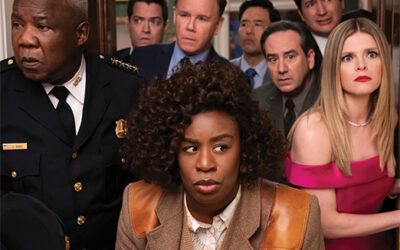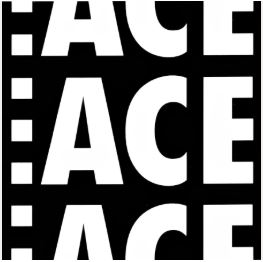February 13, 2021


David Fincher’s Netflix drama about screenwriter Herman J. Mankiewicz (Gary Oldman) as he writes and takes a controversial credit as co-writer of Orson Welles’ 1941 classic Citizen Kane is certainly a ‘filmmaker’s film’ with a stellar cast and crew. And in so much as Mank is also a love letter to the Golden Age of Hollywood, it’s exactly the type of fare that Hollywood loves.
 Based on a screenplay by his late father Jack Fincher, the director relied on a team of long-time collaborators in key roles to help realize his vision, including cinematographer Erik Messerschmidt, ASC, production designer Donald Graham Burt and composers Trent Reznor and Atticus Ross.
Based on a screenplay by his late father Jack Fincher, the director relied on a team of long-time collaborators in key roles to help realize his vision, including cinematographer Erik Messerschmidt, ASC, production designer Donald Graham Burt and composers Trent Reznor and Atticus Ross.
His team also includes editor Kirk Baxter, ACE, who has worked with Fincher on the likes of The Social Network and The Girl with the Dragon Tattoo – for which Baxter and Angus Wall, ACE, won Academy Awards® – as well as The Curious Case of Benjamin Button and TV projects like House of Cards and Mindhunter. “I’ve been working with David for so long now that if something’s worthy of his attention, I’m jumping in boots-and-all as well. Fincher is my vetting process. I don’t read the scripts and give him an answer of whether it’s good enough for me to be involved in. If he’s doing it, I’m doing it.”
Mank finished shooting in early 2020, just a couple of weeks before California started locking down and sheltering in place due to COVID-19. “At the time the city of Los Angeles closed down I had the assembly, and then we all went to our homes and just carried on,” he says. “We just weren’t in the same building,” he continues. “I think we were one of the lucky ones where it didn’t interrupt shooting. And I think because we’ve worked together for so long, and we were far enough along, it wasn’t too much of a hindrance, thankfully.”
The editor’s been using Adobe Premiere Pro since he cut Fincher’s 2014 film Gone Girl, but he stressed that he relies heavily on his first assistant editor Ben Insler when it comes to the technology. “He’s our brainiac,” Baxter says. “They set me up and as long as I’ve got David in front of me, I don’t ask questions.”
He credited Insler with setting up the network for the editorial department to work remotely in the midst of COVID-19. “The workflow that he set up was really fantastic,” he says. “It was really impressive with everybody being in different locations and there was never a single issue.” The team also included assistant editors Jennifer Chung, Casey Curtiss, Russell Anderson, Jeremy Shattuck and Greg Stanley.
Looking back, Baxter says, “I think COVID was harder for the sound department than it was for us. It kind of fell on Peter Mavromates (one of the co-producers), to find safe ways to do additional dialogue recording, and there’s quite a lot of ADR in Mank. That was a challenge. “And it was more of a challenge for Trent and Atticus who did the music score. [They had to] work out how to do the orchestral recordings, efficiently and safely. And they came up with terrific plans, recording each musician separately and rebuilding all the tracks,” he adds.
 Baxter has worked with the Oscar®-winning composers on many of Fincher’s films, and says, “It’s just a joy to work with them.” He reports that he never really needs temp music when he works with Reznor and Ross. “Quite early in the process, they hand over what I call ‘volume one’ and maybe it’s 20 tracks where they’ve scored a bunch of music for the picture, but not to the picture and it’s always remarkable how many of these pieces end up as the main themes throughout the film. For me, the most pleasurable part of what I do is find homes for these tracks, and then Trent and Atticus take those tracks, and evolve them and record them and end up stitching them in perfectly.”
Baxter has worked with the Oscar®-winning composers on many of Fincher’s films, and says, “It’s just a joy to work with them.” He reports that he never really needs temp music when he works with Reznor and Ross. “Quite early in the process, they hand over what I call ‘volume one’ and maybe it’s 20 tracks where they’ve scored a bunch of music for the picture, but not to the picture and it’s always remarkable how many of these pieces end up as the main themes throughout the film. For me, the most pleasurable part of what I do is find homes for these tracks, and then Trent and Atticus take those tracks, and evolve them and record them and end up stitching them in perfectly.”
Baxter says he didn’t approach the film with any kind of preconceived editorial style and didn’t look to the obvious\ reference – Citizen Kane – as a style guide. “The material itself dictated the style of editing. For me, it’s just reacting to the material that comes in,” he says. “But it’s mostly a dialogue heavy movie at the bouncing ball pace.”
The editor reports that in the end, the finished film stuck pretty accurately to the original script. “I think my role in the cutting room was more to illuminate the best of everything. I didn’t have to save the story or fix it. I just had to polish it.” When asked what kind of challenges he faced on Mank, Baxter was hard pressed to name any. But when he looks back on some of the films that he has worked on in the past, “When I look back at Dragon Tattoo, it was a super-painful birth, not to diminish from the end product, but the whole thing was a challenge to do in the timeframe and given the subject matter.
“Whereas this film had a sort of buoyant, effervescent quality to it and it was such a pleasure to make during the mental hell of COVID,” he elaborates. “Mank was a happy place where I could go into my home office and put my headphones on and work on it. I was sad when it finished. It was all actually just a gigantic pleasure.”
The editor also enthused about working with Fincher. “I found with [every] project I’ve worked on with Dave, there’s a steady march to the finish line. There’s no going around and around in circles, trying to find your way out of something or bouncing around between the opinions of different people. It’s a really streamlined process. “David is going to share the pressure that he feels with you,” he elaborates. “But there came a point where I evolved past that pressure feeling like a burden and now it’s become more of a pleasure in helping. I thoroughly enjoyed being useful and expediting the answers to his questions.”
He adds that if there were ever moments when he was unclear how to proceed, he could also turn to Fincher. “He’s extremely
clear. So you’re never lost in the fog of war.” Over the years Baxter and Fincher have developed a shorthand where the director doesn’t sit in during the edits. “Normally, he can pop in and out. He doesn’t hang around to see how I’m making the sausages. He just responds to what he sees. It’s a good system. It’s very time effective.
“I never waste energy trying to convince him that my path is the right path,” he adds. “As far as I’m concerned, if he wants to twist it or take it in a different direction then I’m there to help him – no bickering is required.”
Of their latest collaboration, he sums up, “The part that I really enjoyed the most about the film was the decency of Mank. He’s incredibly flawed, but willing to set himself on fire to do what he believes is right. I think that’s a pretty powerful message for today.”
Featured in Content:
1st Quarter, 2021
ACE Board Message
FEATURES
Animation Showcase
The Midnight Sky
News of the World
One Night in Miami
Minari
Mank
Wonder Woman 1984
Nomadland
EDITOR’S CUT
ACE Holiday Party
STOCK FOOTAGE
Aspects of Editing
Tech Corner
Cuts We Love
Related Content
Cuts We Love: “Nobody Wants This”
"Nobody Wants This" Interview by Carolyn Giardina with Maura Corey, ACE, editor of Nobody Wants ThisMore...Explore Your Favorite TopicsEditFestTechnologyInterviewsMoviesNews A short excerpt from the ‘Virtual Glass of Wine’ British Film Editors interview series. David...
Cuts We Love: “The Diplomat”
"The Diplomat" Interview by Carolyn Giardina with Gary Levy, ACE, editor of The DiplomatMore...Explore Your Favorite TopicsEditFestTechnologyInterviewsMoviesNews A short excerpt from the ‘Virtual Glass of Wine’ British Film Editors interview series. David Fairhead BFE...
Explore Your Favorite Topics
EditFest
Technology
Interviews
Movies
News
A short excerpt from the ‘Virtual Glass of Wine’ British Film Editors interview series. David Fairhead BFE talks about the emotions working in the cutting room.
A short excerpt from the ‘Virtual Glass of Wine’ British Film Editors interview series. David Fairhead BFE talks about the emotions working in the cutting room.
A short excerpt from the ‘Virtual Glass of Wine’ British Film Editors interview series. David Fairhead BFE talks about the emotions working in the cutting room.
A short excerpt from the ‘Virtual Glass of Wine’ British Film Editors interview series. David Fairhead BFE talks about the emotions working in the cutting room.
CinemaEditorMag
Television
Editors On Editing
International
All Videos





